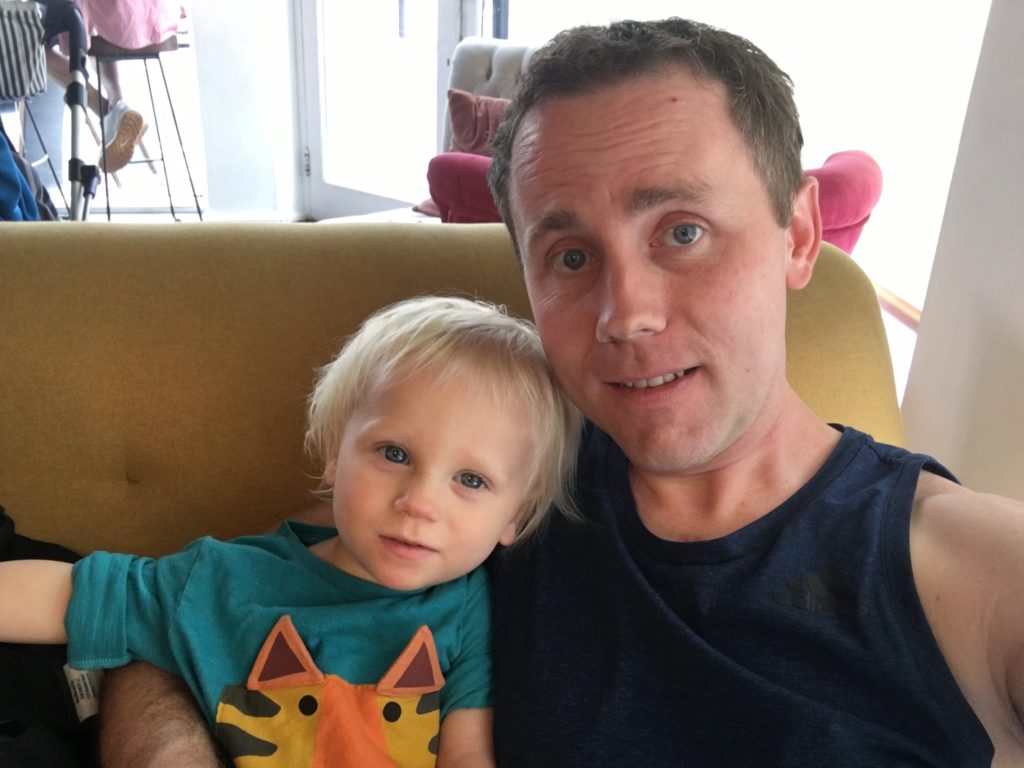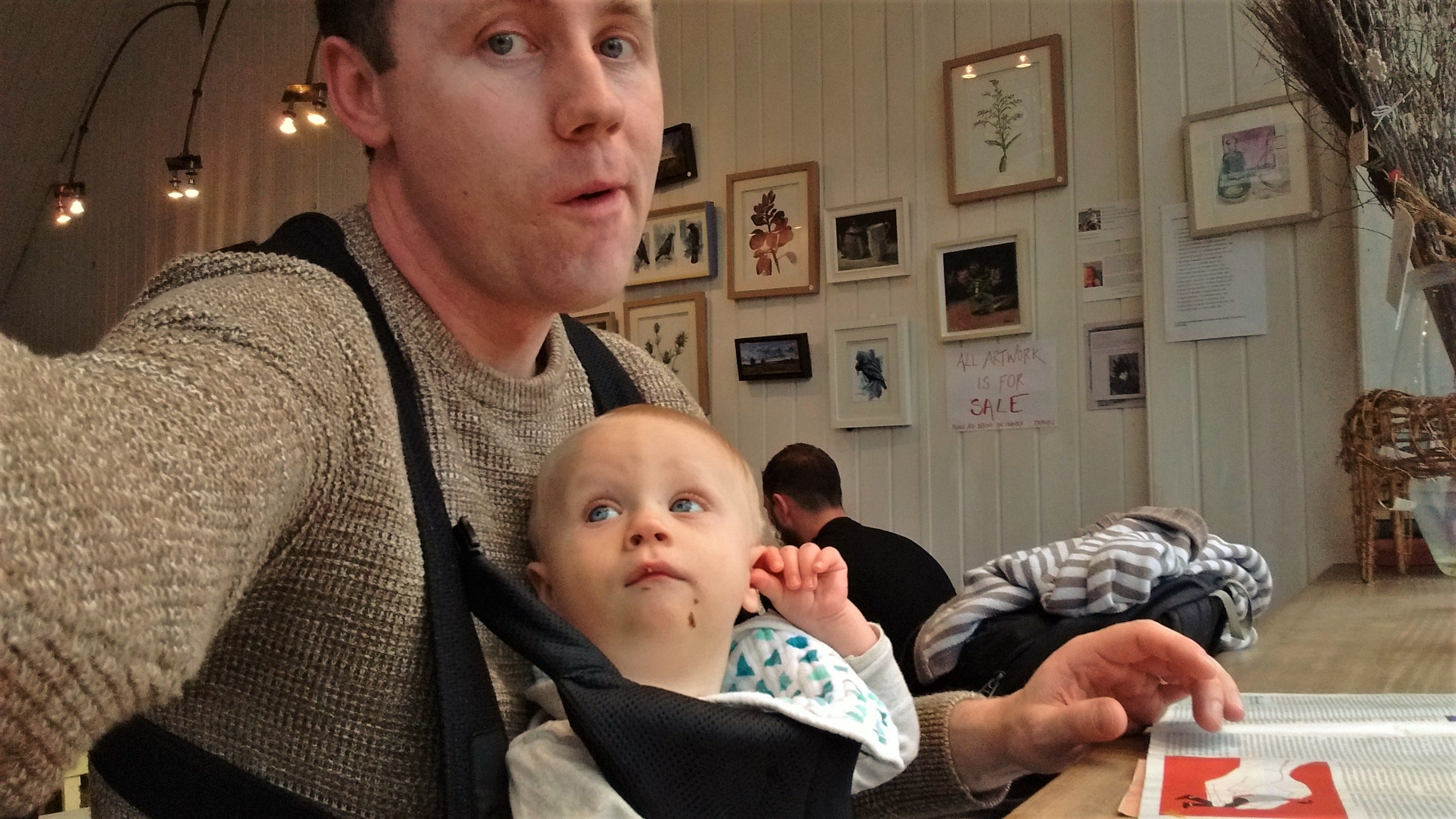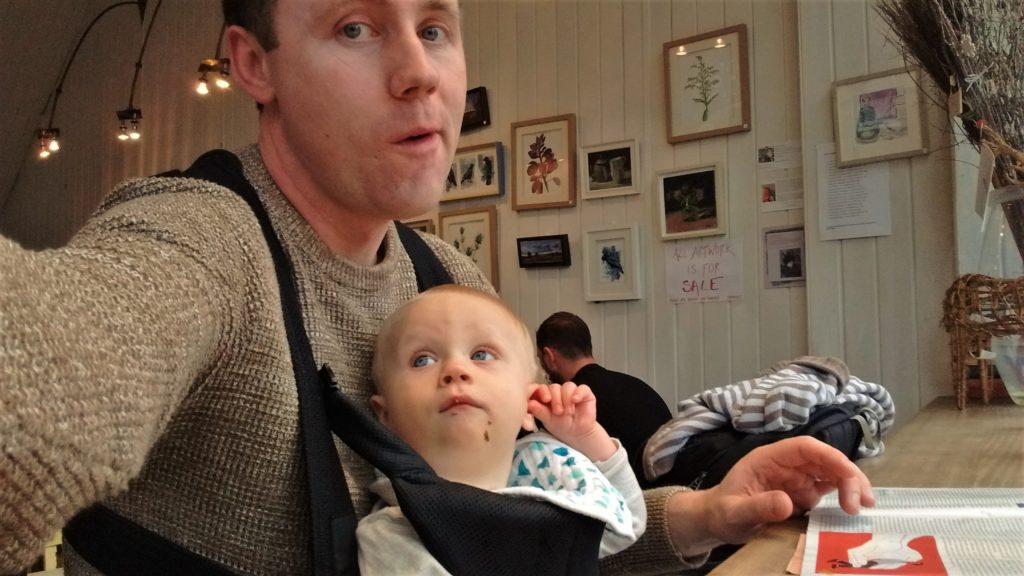David Curran (1996) has worked in government for over 12 years, predominantly on energy policy and technology innovation. Read on for David’s thoughts on the future of renewable energy, political protests and paternity leave.
Hello David! Briefly summarise your work.
I’m trying to make more of our electricity renewable and low-carbon. I manage subsidy schemes for our big wind and solar farms — worth about £5 billion a year — and work to encourage households to play a part, with solar panels and cleverer use of their electricity.
I’ve also run support schemes to bring new energy technologies to market and done my best to build employment in the UK’s renewable sector.

What first attracted you to work with energy?
It was almost accidental! After a year or so in government I was offered a job running the Energy Minister’s personal office and, as part-bag carrier and part-influential advisor, I did everything that my keen and enthusiastic Minister did. From getting accidentally stuck on a gas rig in the middle of the North Sea to exploring a nuclear waste dump deep under the Finnish coast, via sweltering Middle Eastern oilfields and far too many substations, I quickly learned how the industry worked — and how the government can make things happen. I particularly liked the combination of nuts-and-bolts practicality and tricky long-term strategic quandaries.
How did Cambridge prepare you for working in this field?
Cambridge was great at building confidence: I was quite shy when I arrived but left ready for anything! It also encouraged my curiosity and made me not afraid to think about different ways of doing things.
I supervised dozens of undergraduates during my PhD, and it turns out that the art of making first year Materials Science approachable and interesting is remarkably similar to helping a Minister make a tricky decision on an issue they’ve not previously encountered.

How has the public perception of the government changed during your career?
The public is more interested and involved. Energy policy used to be something only industry bodies ever thought about, but now I’m constantly impressed by how much people know and care about where their power comes from. Maybe wind turbines and solar are just more visible than the old coal power stations, but I think there’s also been a change of attitude now that the public can make choices about their energy supply. Today people expect government to work a lot harder to reduce its environmental impact.
I’m hoping ‘low carbon’ and ‘renewable’ will become routine, maybe even dull: just the obvious option.
Has your work been affected by the changes in leadership and political uncertainty over the past few years?
My work has been surprisingly immune to the turbulence. Like a lot of behind-the-scenes government work, my job is not particularly ‘political’. For example, one of my longest-running projects was negotiating an investment in a new port and offshore wind turbine factory in Hull. This project spanned Labour, Liberal Democrat and Conservative Cabinet Ministers, who had quite distinct working styles but were all on the same page when it came to offshore wind.

What do you think of Extinction Rebellion?
I’ve seen big, disruptive protests backfire, and I was apprehensive as the big London occupation surrounded our Westminster offices last year. But it was so well attended — especially by young people — and generally so polite and well mannered that it brought climate change right up to the top of the agenda. The most recent law I’ve led, which is a new right for households with solar panels to be paid for electricity they sell to the grid, was going through its final approval stage in Parliament at the same time as it was surrounded by campaigners! Extinction Rebellion shows that public opinion can change the story around an issue.
What are your predictions for renewable and low-carbon energy in the next few years?
I’m hoping ‘low carbon’ and ‘renewable’ will become routine, maybe even dull: just the obvious option. A good third of UK electricity is renewable now, but we only create a couple of percent of the world’s emissions. The bigger story is that thanks to our early efforts (and spending) to support prototype projects, offshore wind turbines have gone from being innovative, risky things to cheap, safe investments — ready to spread around the world. In the UK the next big story may be how we use our increasingly low carbon electricity to clean up other sectors, such as transport and heating.
Tell us about your experience with paternity leave.
I took three months off when my son, Alex, was nine months old. Unlike the rather stressful fortnight straight after he was born, this was a time to go and explore his new world together, just at the point where he was old enough to appreciate it. He soon revealed an impressive ability to deploy The Power of Cuteness to be given free treats wherever we went!
I had a great time and I think he did too. I’m glad I had a chance to really get to know him at that age and be a proper dad rather than an evenings-and-weekends figure, and I’d recommend it to anyone.

What do you do outside of work?
When I was eleven I read the whole of the 500-odd page Hamlyn Guide to Home Maintenance (I was a curious child) and, to my parents’ bemusement, I became an instant DIY expert. This was handy in my Punt Society days, when I could always get a stricken punt back on the river, but really paid off when we bought a long-derelict townhouse in Battersea. I now moonlight as a builder, getting the house back into a habitable condition and trying to improve its appalling energy efficiency. I also run a neighbourhood website since, contrary to popular belief, even inner London has active local communities. But most of my spare time gets taken up by Alex, who has already learnt how to use several of my building tools…
What message do you want Johnians to take away from this article?
Cleaning up the world’s energy is one of the most important things we can do to cut carbon, and almost everyone can do something to help.
If you’re keen to read more about what Johnians are doing to help the environment, check out the other recent articles on this blog and read the spring issue of Johnian magazine, mailed and emailed late-April 2020, which will have an environmental focus.





